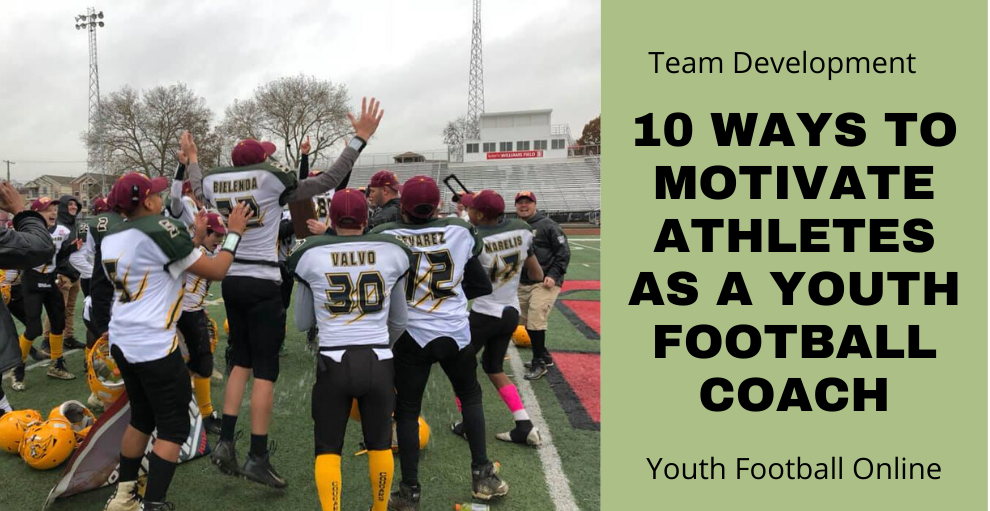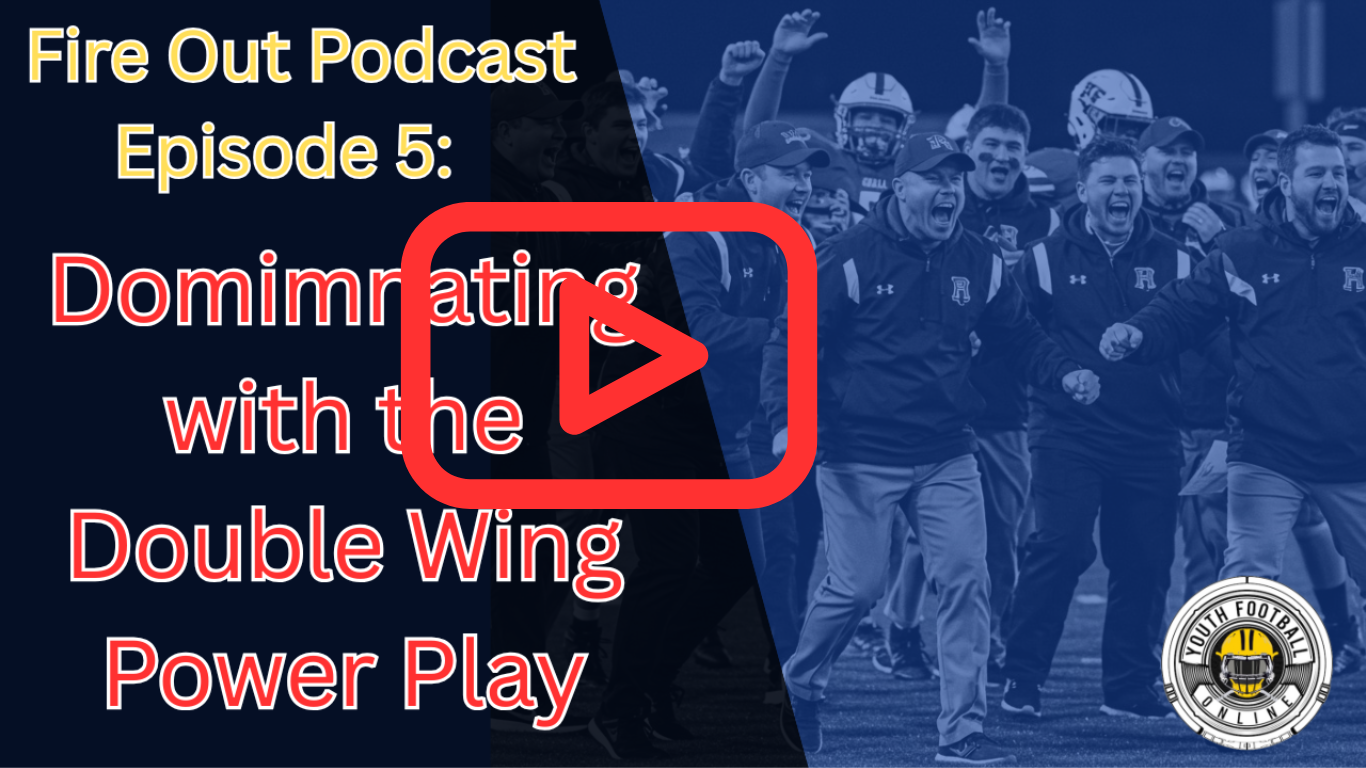10 ways to Motivate Athletes as a Youth Football Coach

The best coaches that I know have great football minds, but they are also elite motivators. There is so much more to coaching than just the x’s and o’s. I am always looking for ways for to become a better motivator. Motivating athletes is probably one of the most challenging things for coaches. This is because every player on your team is unique in their own way. Some players respond to encouragement. Some players need tough love. If you have a roster of 20+ players, that’s 20+ different personalities you have to work with. At the end of the day, if you want to be successful on Sundays, you need to get better and have excellent practices. In order to have excellent practices give the kids motivation to come.
- Motivation begins with the head coach. The head coach must always be the beacon of light for the team. If the head coach is enthusiastic it will rub off on his players, coaches, and even the parents. It’s important that all coaches show that they are organized and happy to be there. Coaches set the tone and create the overall team vibe. Enthusiasm is highly contagious.
- Create relationships with parents and players. Build close relationships with your players. Let them know that you care about them as a football players and as a person. Stay plugged in to what is going on at home. Ask how their day was. Ask how they are doing in school. I understand if you have a large team it’s hard to talk to every player, but if that is the case, it’s important that assistant coaches make that connection with their position players. If you show that you care, they will care in return. If the kids trust you, then their parents will.
- Make things competitive. Kids love to compete, that’s a fact. This not only makes practices more fun, it will help teach them to compete on gameday. Just like anything else, if you want your kids to be good at something, you have to practice it right? Practice competition!! I highly recommend checking this article out: Tricking Players into Hard Work.
- Listen to your players. Coaches run the show. I’m not saying you should have youth football players telling you how to do things, but ask for their feedback. Ask them what their favorite drill is. Ask them what their favorite play is. Ask them how they feel about the team. Ask them about their life outside of football and listen! Remember, football is the ultimate team sport- sometimes player feedback is important and useful. Listening to your players will help develop trust.
- Be organized. Having a well planned and organized practice is absolutely critical. If you are just ‘wing it’ or your practices are unorganized and have no structure you will stand out like a sore thumb. This will make you look bad in front of the parents, players, and other coaches. These poorly planned / unorganized practices will be show on gameday. Also, assign coaching responsibilities, hold coaches accountable for the position they are coaching. So if you have the running back coach talking about what the QB should be doing you have a problem. Here’s a great article: Practice Planning and Organization
- Always be positive. One of the biggest things you need to do as a coach is to make sure you find the positives. We put an emphasis on effort, if a player gives great effort we acknowledge that and show appreciation. Some kids require you to give more tough love, but most respond much better to positivity. Always find a positive wherever you can. Tell them and coach them up when they mess up, but also tell them when they do a good job or something right.
- Make practice fun. It’s important that kids actually enjoy practices. We work our players hard, we push them, we yell, we’re constantly trying to push them and elevate their play. However, we will always make time to have some sort of fun- even if it’s only for a few minutes each practice. Keep things interesting, competitive, and fun. If you do these things kids will be much more motivated to come to practice. Give the kids something to look forward to each practice.
- Change practices up. It’s important to keep things fresh with your players. Kids will lose interest very quickly if you do the same stuff over and over. When every single practice is exactly the same, things get stale quickly. Keep in mind, that there are different ways to do the same drill. For me, changing things up is something I definitely need to do a better job with.
- Reward hard work and effort. When a player gives great effort it’s important that you recognize that. Kids want positive feedback, especially when they give you strong effort. If you consistently reward effort the kids will be more likely to give you consistent effort. Something I am going to do this season is have an effort player of the game. We will give a helmet sticker to the player that gave the most that game. We may have as many as 3 players receive effort player of the game stickers. It doesn’t matter what it is, reward players that work hard and are committed to your team.
- Encourage teamwork! Encouraging teamwork is the last point here, but it is arguably the most important point. When you have a solid team-first foundation the kids will be much more likely to buy-in. Kids want to be part of something good and positive- so make sure that thing is your football team. Encourage a team environment where every single player is appreciated and encouraged by teammates and coaches. Team bonding is absolutely critical. The first thing I tell my players is that if they don’t have anything positive to say to their teammates, then don’t say anything at all. The kids should become friends and always have each other’s back. This is sometimes difficult because kids are going to be kids, but as a coach you need to do your best to create a good environment that ALL players want or at least don’t mind coming to.
Bonus Tip: Don’t show favoritism. Kids will notice that and become discouraged. All players on your team matter, regardless how good of a football player they are. Make sure everyone sees and knows that.
Motivating kids is very challenging. However, if you do implement these 10 ways to Motivate Athletes as a Youth Football Coach you’ll have a motivated team that is ready to consistently compete.











